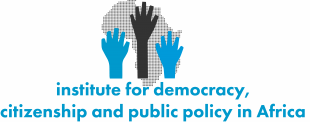CSSR Lunchtime Seminar: Darren Janz

The Institute for Democracy, Citizenship and Public Policy in Africa (IDCPPA) and the Centre for Social Sciences Research at the University of Cape Town invites you to join us for a seminar on 11 October 2022. Darren Janz from Duke University will be presenting on the topic: Solidarity on the Move: Reassessing Traditional Authority and the Bloc Vote in South Africa.
Modern scholarship and public opinion agree that traditional leaders, or chiefs, wield broad influence over electoral politics in large parts of contemporary Africa. Whether by issuing material benefits and sanctions, commanding personal loyalties, or emphasizing the ability of their preferred candidates to foster local development, chiefs have developed a range of strategies to influence vote choice among those under their jurisdictions, often to substantive effect. Understanding the extent to which chiefs are able to motivate their communities as a whole to align with their political preferences, however, is subject to a continued tension: while most explanations of chiefly influence discuss chiefs’ appeals to individuals or small groups of voters, academic and everyday language alike describe chiefs as electoral “kingmakers” able to deliver their communities’ votes “wholesale,” “collectively,” or “en bloc.” To resolve this tension, I reevaluate the prevalence of collective or “bloc” voting within South Africa’s traditional authority areas by contrasting the limits of existing metrics of bloc voting with two new metrics of “mobile” bloc voting that measure the extent to which chiefs are able to persuade their communities to switch party allegiance collectively between elections. I find that traditional authority areas are less likely than other areas to engage in bloc voting during individual election cycles, contrasting the bulk of existing academic literature and pointing to the potential role of chiefs in fostering, rather than diminishing, multiparty electoral competition in communities where their influence is strong enough to invite serious campaigning by multiple rival parties. At the same time, I find that traditional authority areas are more likely to switch their vote choices as a bloc when chiefs have reason to change their own party allegiances, reaffirming chiefs’ electoral influence and evincing their ability to sway their communities’ political preferences as a whole if they are motivated to unite politically. My findings have broad implications for the study of traditional leaders’ roles in electoral and party politics, as well as for the study of collectivism in politics more generally.
Darren Janz is a political science student at Duke University currently serving as a visiting member of the Data Management team at Afrobarometer. His research interests include political behavior, identity, clientelism, public administration, decentralization, traditional authority, and state legitimacy with a regional focus in southern Africa.
Seminar details
Date: 11 October 2022
Time: 12:45 pm-2pm SAST
Location: Centre for Social Science Research Seminar Room, 4.29


